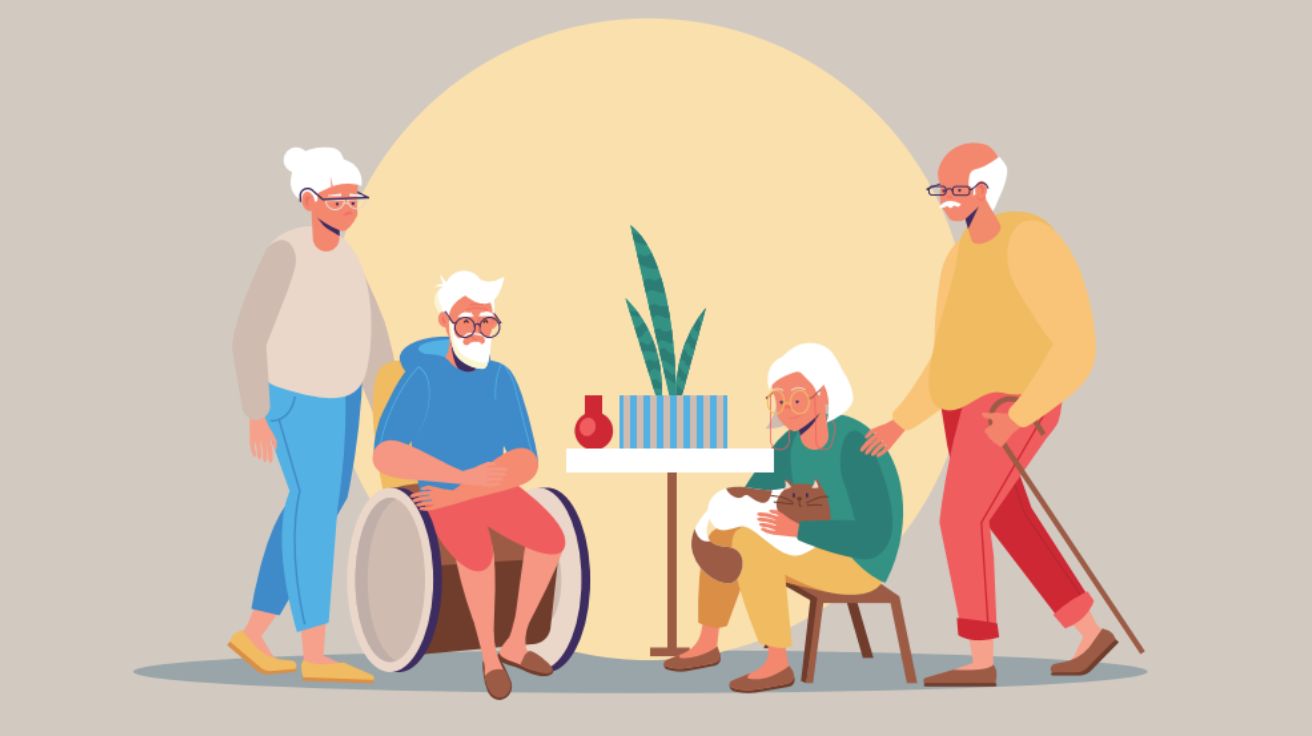In 2024, South Korea officially entered the era of a “super-aged society,” with individuals aged 65 and older accounting for over 20% of the total population—just seven years after becoming an aged society. According to projections from Statistics Korea, that figure is expected to reach 30.9% by 2036 and approach 40% by 2050. This demographic transition is transforming the insurance industry, creating both challenges and opportunities.
One of the most notable changes is the evolving consumption patterns among seniors. Between 2019 and 2024, the average monthly household expenditure in South Korea grew by 3% annually, while households led by those aged 65 and older saw a 5% annual increase. A Deloitte survey found that older consumers allocate a higher-than-average portion of their spending to food (16%), savings and investments (15%), and leisure activities (13%). The data reflects a fundamental change: seniors have become active consumers rather than passive care recipients.
Japanese Insurers Lead Through Vertical Integration
Japan, which became a super-aged society in 2005, provides insight into future trends. Leading insurers there have moved swiftly to dominate the senior economy. SOMPO Holdings stands out for its vertically integrated model that spans insurance, healthcare, and long-term care. The company created SOMPO Care through acquisitions of Watami Care in 2015 and Message Co. in 2016, and now operates over 500 nursing homes and 50 day-care centers nationwide.
In 2019, SOMPO launched the “Future Care Lab in Japan,” a hub dedicated to the development and real-world application of advanced care technologies, including robotics, Internet of Things (IoT), and artificial intelligence (AI) for early dementia detection. The company has also built a Real Data Platform (RDP) to analyze actual user data, driving innovation in care delivery.
Nippon Life Insurance took a similar step in 2024 by acquiring Nichii Holdings, a leader in healthcare administration and long-term care. Its “GranAge Star” service package supports seniors throughout their later life stages, offering identity verification, hospital accompaniment, daily living assistance, guardianship services, and end-of-life planning.
U.S. Insurers Expand Through Medicare Advantage
In the United States, insurance companies are leveraging the Medicare Advantage program to expand their footprint in the senior care space. UnitedHealthcare operates a comprehensive platform through subsidiary Optum, integrating insurance, pharmacy benefits, health IT, data analytics, and chronic disease management for older adults.
Humana is expanding its primary care offering through CenterWell, a senior-focused clinic network. From 200 centers across nine states in 2022, CenterWell grew to over 340 centers in 15 states by 2024, serving nearly 390,000 older adults. CenterWell generated approximately one-third of Humana’s total earnings in Q1 2025.
CVS Health has also made strategic inroads with its vertically integrated model, uniting its Aetna insurance arm, MinuteClinics, and pharmacy network. The company delivers community-based services such as health screenings, chronic condition management, and medication counseling tailored for seniors.
European Insurers Partner with Public Systems
European insurers have adopted a different strategy, working closely with public healthcare systems. Achmea in the Netherlands collaborates with the country’s long-term care insurance and private health systems to offer in-home care solutions. These include not only home visits but also digital health tools like virtual care platforms to enhance preventive care and accessibility.
In the UK, Saga has built a brand exclusively for customers aged 50 and above under the philosophy, “Life begins at 50.” The company offers travel, insurance, and financial services designed to enhance senior lifestyles through personalized products and care services.
Belgium’s AG Insurance is combining financial security with care services. In 2022, it acquired Anima, a senior housing company operating 24 residences, introducing an integrated model that merges residential and nursing care under one roof.
Korean Insurers Face Platform Transformation
Korean insurers must shift from traditional risk coverage to comprehensive lifecycle platforms. This includes expanding products like wellness-focused insurance and long-term care coverage, while integrating health apps and reward systems to encourage healthy living.
To build internal capabilities, insurers should consider direct entry into healthcare and eldercare markets through subsidiaries, mergers and acquisitions, and strategic partnerships. Establishing data-driven, personalized health management platforms and investing in care infrastructure—whether through in-home services or nursing facilities—is essential.
Moreover, the industry must foster expertise in healthcare, social services, and digital technology. This includes forming dedicated senior care divisions, securing partnerships with medical institutions, IT firms, and eldercare providers, and building public-private collaborations with government agencies and nonprofits to maximize social value.
FAQ (Editor’s Note: The FAQ section was independently compiled by the publication based on insights from the Deloitte report.)
Q: What exactly is the “senior industry”?
A: It refers to a broad range of services tailored to individuals aged 55 and older—including healthcare, caregiving, financial planning, housing, and leisure. In the insurance sector, it involves delivering integrated solutions that support healthy and secure aging beyond traditional policy offerings.
Q: How are insurers utilizing AI and digital tools?
A: Japan’s SOMPO Holdings is piloting AI-powered dementia diagnostics and real-time data analysis via its RDP platform. In the U.S., UnitedHealthcare uses Optum’s data analytics and AI-based prediction tools for personalized senior care management.
Q: What must Korean insurers do to enter the senior market?
A: Key steps include developing insurance products tailored for aging populations, building digital healthcare service platforms, forming strategic alliances with healthcare and IT companies, securing professionals in social welfare and medical fields, and ensuring robust data protection.
Source: Deloitte Insights
Report title: Securing Future Competitiveness in Super-Aged Societies – A Global Look at Insurers Entering the Senior Industry
Image credit: Deloitte






